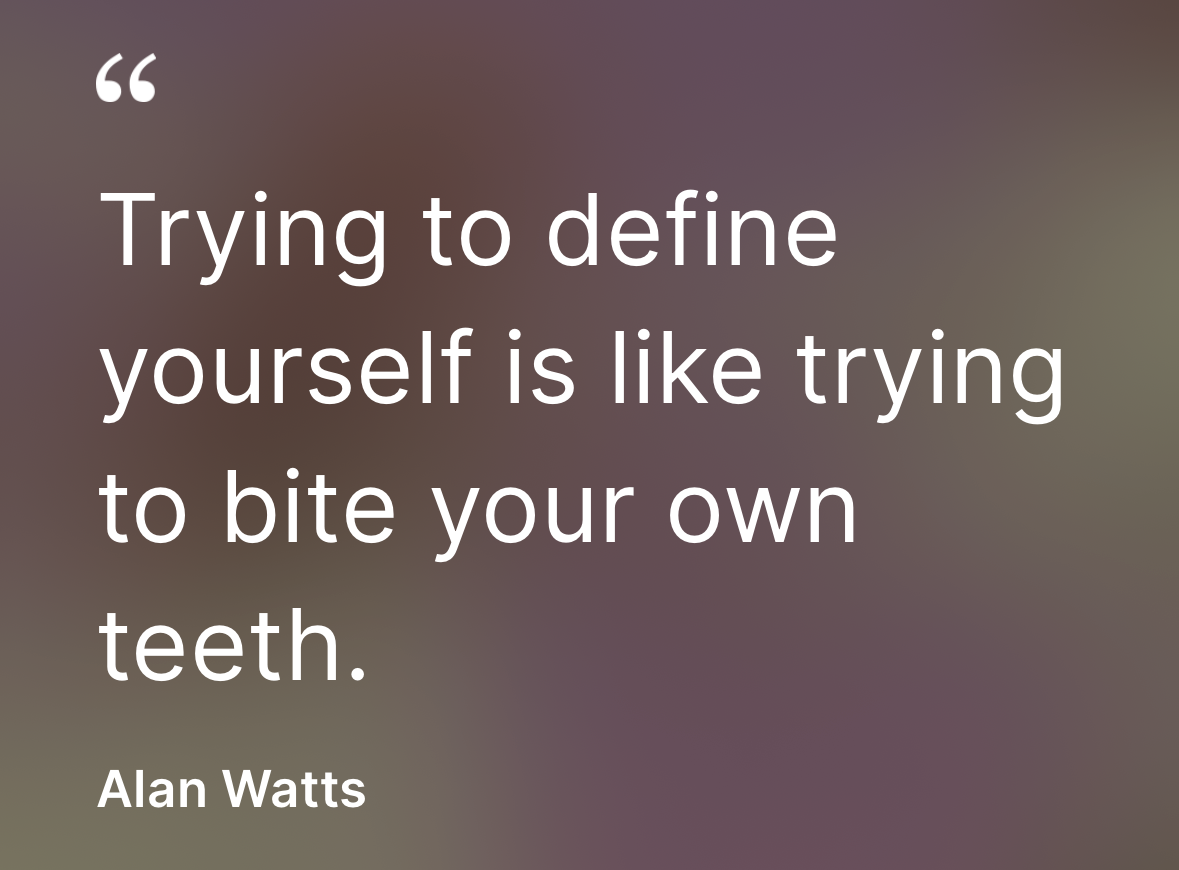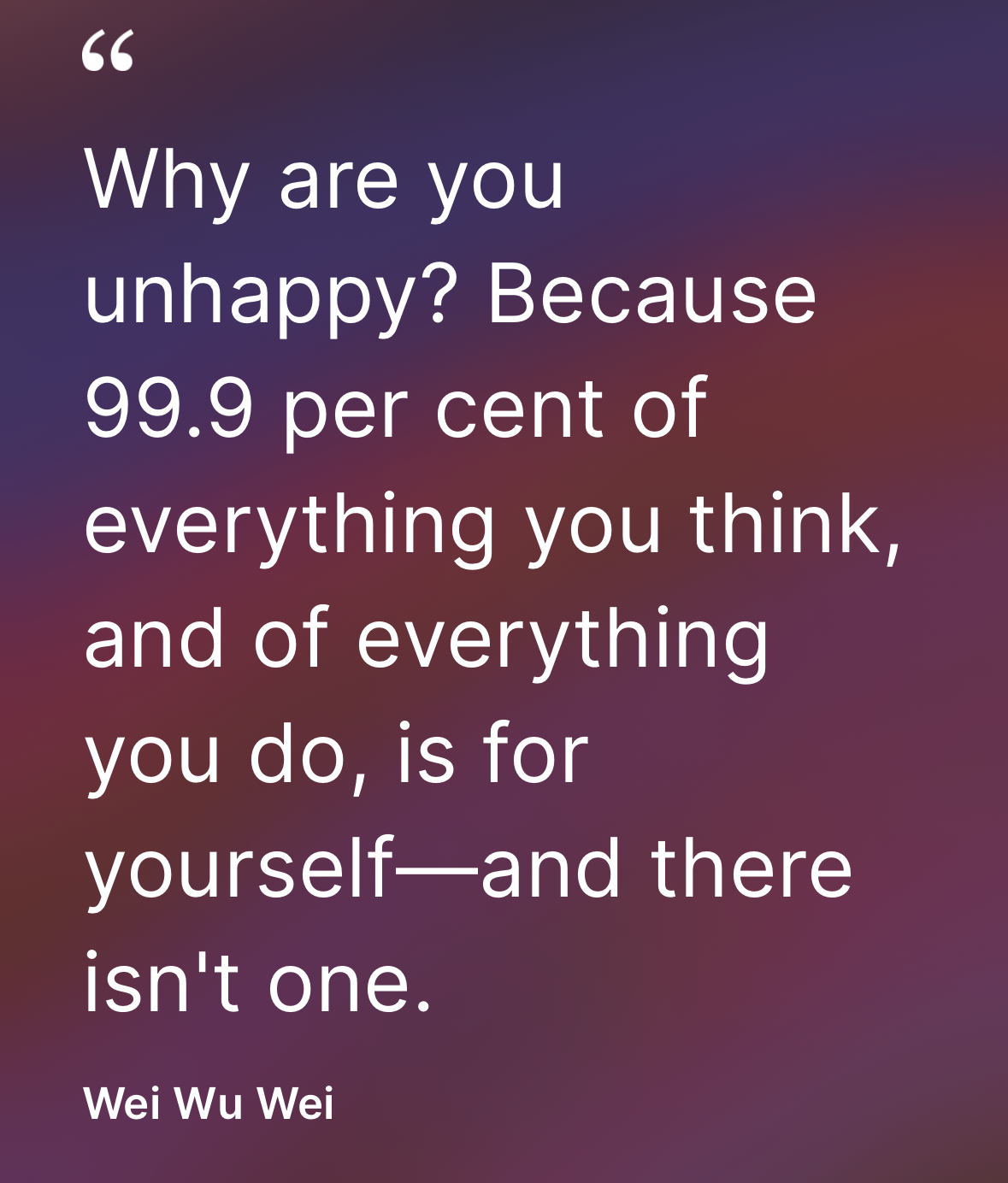Sense of self

This very first cheap trick creates the core of all future mental models, a model of ourselves, a self-archetype. The first self-archetype is merely the subset of James’ blooming, buzzing confusion that we classify into our mind’s “I.” It is extraordinarily hard to redraw this boundary later in life.
Venkatesh Rao • Tempo
But this self is never purely ours. It is a composite, a chimeric entity made from our past behaviors and the averaged tendencies of millions of others.
Venkatesh Rao • Autoamputation Flow
Chimeric: Relating to or resembling a chimera, which in mythology is a creature composed of parts from different animals. In contemporary usage, the term "chimeric" often describes entities or concepts that are composites or hybrids, integrating diverse elements or characteristics. In fields such as biology, a chimeric organism may contain cells or genetic material from different species, whereas in literature and philosophy, it can refer to ideas or identities formed from a blend of various influences and experiences.
chimeric (adjective): composed of diverse elements or parts; hybrid 🧬🐉

We are not looking at ourselves as we are, but at who we were, mediated by what everyone is .
Venkatesh Rao • Autoamputation Flow
Summary: "I" versus "Me" philosophical differences
Arthur C. Brooks contrasts "I" (the observing self) with "me" (the self defined by others' perceptions), arguing that most people are "all me and no I," and that cultivating the observing "I" (Atman) lets you live less attached to social comparison and more freely.
Why it matters
- Being dominated by
Making Sense with Sam Harris • #291 — Where Is Happiness?
.starred
Self & Other
Study the connection between your sense of self and your relationship to others.
The Self, as Jung defined it, is a greater entity, which includes the Ego but also incorporates the Personal and Collective Unconscious. Dreams and intuitions come from the Self. The archetypes of the unconscious dwell there. It is, Jung believed, the sphere of the soul.
Steven Pressfield • The War of Art
Colloquially, we often speak of ourselves as if we were split in two: “I couldn’t make myself get out of bed this morning,” “I had to force myself to be calm,” “I had to hold my tongue.”
Edward Slingerland • Trying Not to Try: Ancient China, Modern Science, and the Power of Spontaneity
Duality